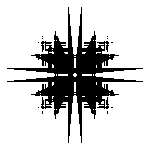Anxiety disorders significantly impact daily life, causing physical and mental strain with symptoms like restlessness and sleep disturbances. Natural remedies such as Kratom offer muscle relaxation, alleviating anxiety symptoms by interacting with opioid receptors in the brain. Active compounds mitragynine and 7-hydroxymitragynine reduce muscle tension. CBT, physical activity, deep breathing, and mindfulness meditation are also effective tools for managing anxiety disorders, promoting overall well-being alongside Kratom and muscle relaxation techniques.
Anxiety disorders affect millions, yet managing symptoms can be challenging. This comprehensive guide delves into various aspects of anxiety support, offering insights on understanding common anxiety disorders, their symptoms, and significant impacts on daily life. We explore promising avenues like Kratom as a potential aid for muscle relaxation, showcasing its role in alleviating anxiety-related tension. Additionally, discover effective strategies for managing anxiety beyond plant-based remedies, empowering individuals to take control of their mental well-being.
- Understanding Anxiety Disorders: Symptoms and Impact
- Exploring Kratom as a Potential Aid for Muscle Relaxation
- Effective Strategies for Managing Anxiety Beyond Plant-Based Remedies
Understanding Anxiety Disorders: Symptoms and Impact
Anxiety disorders are a group of mental health conditions characterized by excessive and persistent worry, fear, and anxiety that interfere with daily life. Symptoms can vary widely but often include restlessness, fatigue, difficulty concentrating, irritability, muscle tension, and sleep disturbances. One effective approach to managing these symptoms is through the use of natural remedies like Kratom, known for its potential muscle relaxation properties.
The impact of anxiety disorders can be profound, affecting not just an individual’s mental state but also their physical well-being. Chronic anxiety can lead to cardiovascular issues, digestive problems, and weakened immune function. Techniques that promote muscle relaxation, such as deep breathing exercises, meditation, and even certain herbal supplements like Kratom, can play a significant role in mitigating these symptoms. These practices not only help to reduce overall anxiety levels but also enhance one’s ability to cope with stressful situations, fostering a greater sense of calm and well-being.
Exploring Kratom as a Potential Aid for Muscle Relaxation
Kratom, a natural herb derived from the leaves of the Mitragyna speciosa plant, has gained attention for its potential therapeutic effects, particularly in managing anxiety and promoting muscle relaxation. The primary active compounds in Kratom, mitragynine and 7-hydroxymitragynine, interact with opioid receptors in the brain, similar to other natural painkillers like morphine. This interaction can lead to feelings of euphoria and relaxation, making Kratom a potential aid for individuals seeking muscle relaxation as a coping mechanism for anxiety disorders.
Research suggests that Kratom’s ability to bind to these receptors could help alleviate tension and spasms in muscles, which is especially beneficial for those experiencing muscle rigidity or pain associated with anxiety. Moreover, its gentle sedative effects might contribute to improved sleep quality, another common challenge faced by individuals with anxiety disorders. However, it’s crucial to approach Kratom as a complementary therapy due to varying individual responses and potential side effects, emphasizing the need for professional guidance and medical supervision when considering its use for muscle relaxation or any other health condition.
Effective Strategies for Managing Anxiety Beyond Plant-Based Remedies
Anxiety disorders can be managed effectively through a combination of strategies, going beyond plant-based remedies like Kratom, which is known for its muscle relaxation properties. One powerful approach is cognitive-behavioral therapy (CBT), designed to help individuals identify and change negative thought patterns contributing to anxiety. CBT equips people with practical tools to cope, fostering a sense of control over their thoughts and behaviors.
Additionally, regular physical activity plays a significant role in managing anxiety. Exercise releases endorphins, which can reduce stress and improve mood. Techniques like deep breathing exercises and mindfulness meditation also prove effective. These practices encourage individuals to focus on the present moment, calming the mind and reducing anxious thoughts. Combining CBT, exercise, and relaxation techniques offers a comprehensive approach to managing anxiety disorders, promoting overall well-being.
Anxiety disorders can significantly impact daily life, but with the right tools and strategies, management is achievable. By understanding the symptoms and effects of anxiety, individuals can explore various effective methods for relief. Plant-based remedies like kratom have shown promise in promoting muscle relaxation, offering a natural approach to complement traditional treatments. Additionally, there are numerous proven techniques beyond plant aids to combat anxiety, empowering those affected to regain control over their mental well-being. Combining knowledge with accessible resources allows for a holistic and personalized journey towards mitigating anxiety’s hold.






